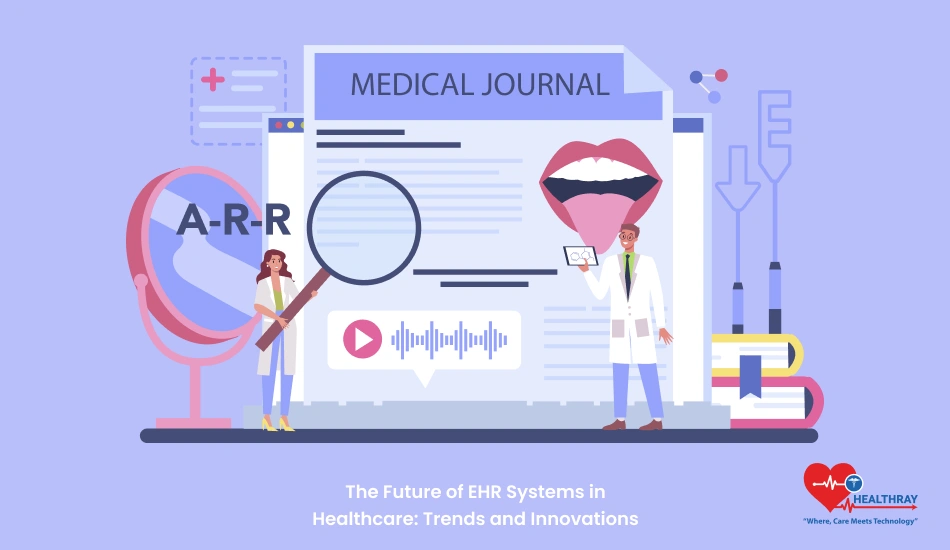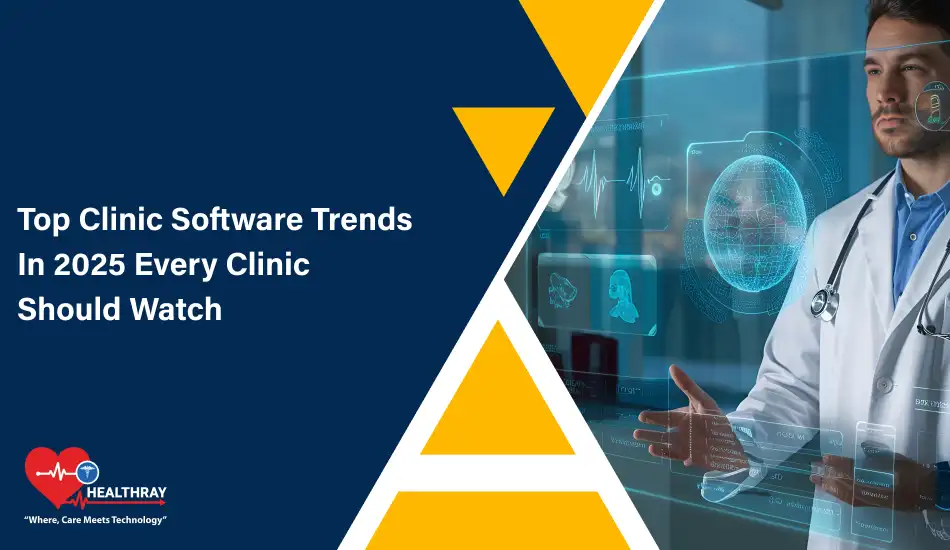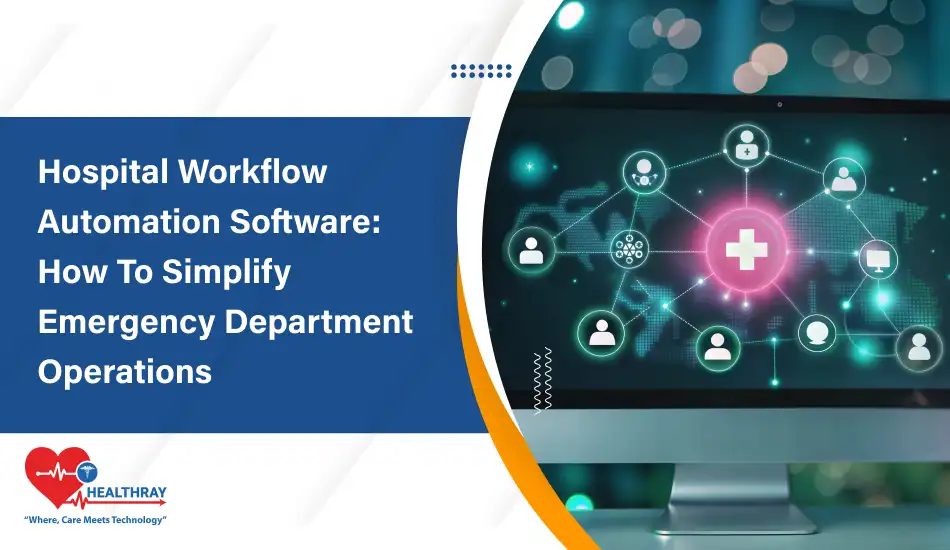EHRs have revolutionized health care with the ability to store, share, and manage the data of their patients digitally. EHRs are now more and more indispensable in health care setups, from multi-hospital conglomerates to individual clinics. EHR systems continue to evolve quickly.
For being a hospital owner, clinic, and specialty doctors, it is indispensable to be current in the latest trend and innovation. This paper investigates the future of EHR software and emerging technologies that model them and prepare the healthcare provider for the future.
This software used for patient record keeping, managing healthcare inventories, simplifies the billing system, and upgrades the claiming system. Additionally, it improves sterile management and compliance to all clinical units effortlessly.
Why are EHR systems critical to modern healthcare?
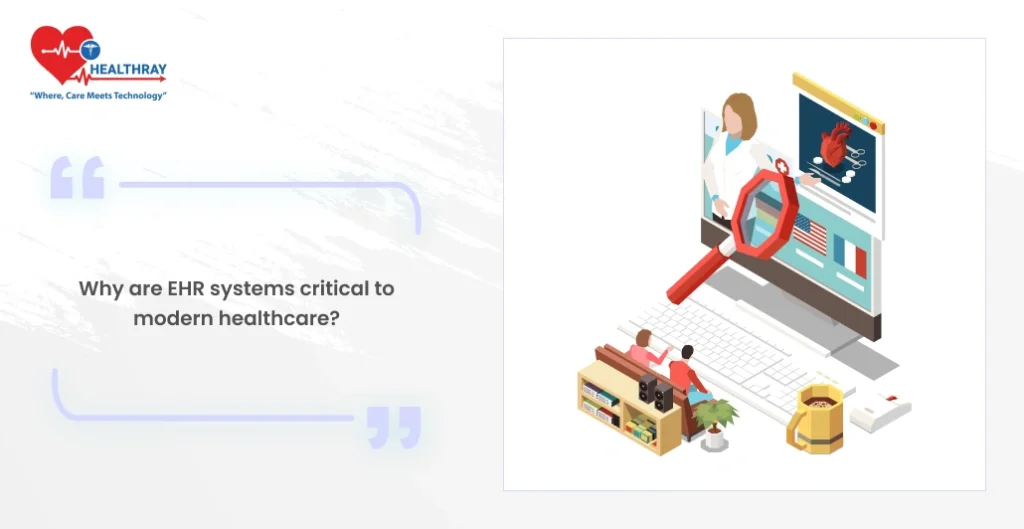
EHR systems proved themselves to be a game changer for health care. These help optimize the workflow procedures by saving time spent on documentation, improve care for patients through timely access to the medical records and provide better coordination with other healthcare providers. EHRs can hold information relating to every prescription, lab results, etc, and share every detailed history in multiple platforms without compromising security measures. This has reduced errors while making better judgments possible for the doctors.
As patients’ number increases, treatment becomes complicated, and requirements for compliance, the role of EHR Software has become significant. No doubt, an excellent software for patient record keeping and controlling other healthcare services. They are not just digital record-keeping systems but comprehensive platforms to better patient care, optimize resources, and support regulatory compliance.
Interoperability is one of the key trends shaping the future of healthcare EHR systems:
One of the most pressing needs in today’s EHRs would be the incorporation of interoperability. Healthcare professionals use various software, making it relatively difficult to transition patient data within systems. For instance, sometimes, delays on treatments occur owing to such discontinuities that are bound to lead to low efficiency. Integration of data streams from point to point becomes the cornerstone as the future system is concerned to break the given barriers.
The role of cloud-based solutions is fast becoming central to this effort, as more healthcare providers begin to have a chance to access data at all times and in any location. In an attempt to enhance interoperability, the U.S. Office of the National Coordinator for Health Information Technology has called upon the use of standardized APIs. This will help improve systems’ communication ability with each other, thereby resulting in improved collaborations between healthcare providers and improved care for patients.
AI and Automation
AI is the other emerging trend in EHR systems. A lot of a doctor’s time is spent on documentation currently. AI can automate the administrative tasks that will give doctors more time with patients. For example, AI-powered voice recognition technology can be integrated into an EHR system, which will enable a doctor to dictate the notes while the system types out the dictations in real-time.
This, in addition to clinical decision support, enables the analysis of patient data by suggesting potential diagnoses or treatment options. The capabilities are extremely beneficial in specialty care, especially since physicians work with complex conditions. AI may therefore reduce cognitive overload among healthcare providers, thus leading to better decisions and outcomes.
Cloud-Based EHR Systems
Cloud computing increasingly plays a vital role in healthcare, as cloud-based EHRs are more accessible, scalable, and flexible toward data than old on-site versions. Hospital and clinic owners widely adopt cloud-based solutions for the EHRs of their entities to ensure data security but is easily accessible on demand.
These systems also offer better disaster recovery solutions. In the event of loss of data caused by hardware failure or a natural disaster, EHR systems through cloud-based architecture can restore the data faster to minimize downtime. Healthcare providers are going to benefit from continued cloud technology innovations that are more directed toward cloud-based systems by most healthcare institutions to their scalability and lower costs besides superior security features.
Robotic Process Automation (RPA)
Another innovation that is making waves in EHR systems is Robotic Process Automation, or RPA. RPA automates repetitive tasks such as data entry, which reduces errors and saves time. This is especially important for hospitals and clinics that handle large volumes of data. By automating routine administrative tasks, RPA allows healthcare providers to focus on more critical aspects of patient care.
RPA is applied to automate the billing process, reduce coding errors, and comply with health care regulations. The scope of RPA in EHR systems will increase with increasing complexity, thereby improving efficiency in health care institutions.
Telehealth Integration
Telehealth comes out as a must-have in the time of the COVID-19 pandemic and the trend is to continue growing. EHR systems will also learn to adopt telehealth services so that healthcare providers can manage remote consultations more efficiently. The integration with the telehealth platform will allow a doctor to update patient records in real-time, share information securely, and make sure all documentation will be handled automatically.
This trend will grow as telehealth integration becomes the natural way healthcare providers deliver healthcare.
For a hospital or clinic, the implementation of telehealth on EHR offers the ability to expand its current services and support efficient workflow operation.
Blockchain for Security
Among the many concerns that have begun to take shape in the minds of health care providers, security of data stands as one of the major concerns mainly after recent cyberattacks on health care institutions. Blockchain technology can be said to be emerging as a potential solution towards the security and transparency issues in EHR systems. It provides for an immutable ledger of patient data, and it can be accessed only by authorized personnel handling sensitive information.
With blockchain, healthcare providers can also make an audit trail that will show who accessed the data and when. As such, aside from HIPAA data protection regulations compliance, the major benefits of blockchain are greater transparency. As of now, though blockchain is still very early in health care, its potential to change the face of data security of EHRs is revolutionary.
Resistance to Change
Many health care providers are still very conservative and not willing to embrace new technologies, including advance EHR systems. While the fear of changes from the norm ways of performing things is another reason, not having the ability to do it is another significant reason.
Cost and Complexity
These advanced EHR systems are very expensive, at least for the smaller healthcare centers. The cost of shifting into a new system, training staff, and new technology itself is too expensive for the clinic with slender purses. Cloud solutions and advancement in AI make them increasingly possible and less labor-intensive.
Compliance and Data Privacy
It’s one of the hard challenges as far as ensuring data privacy with growing cyber threats on healthcare institutions, but healthcare providers have to ensure that the EHR systems are operating inside the data protection regulations such as HIPAA. Innovation can thus help minimize this risk through the automation of compliance and better security on data via innovation such as blockchain and RPA.
What hospital and clinic owners should prepare for in 2024 and beyond
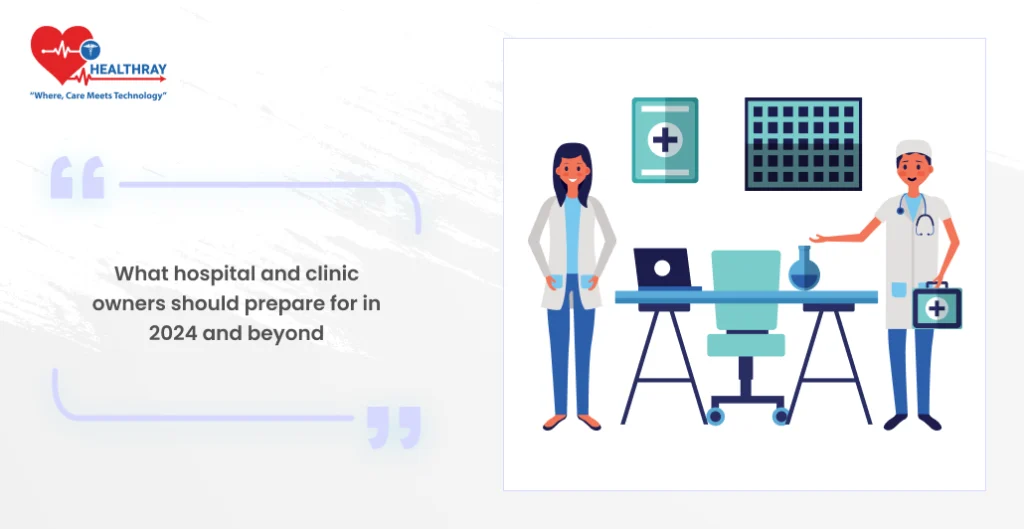
These are trends and innovations in EHR systems that a hospital or clinic owner needs to be ahead of to compete and offer quality care to their patients. A few steps in this regard include:
Evaluate Current EHR Systems: Assess your current Electronic Health Records Systems and determine if it meets the needs of your practice. If it lacks interoperability or automation features, then it is high time to upgrade.
Invest in Training: You should ensure your staff is trained regarding any new systems. Proper training will get the best out of EHR and save you from costly mistakes.
Move to Cloud-Based Solutions: If you have not already moved to a cloud-based EHR system, now is the right time. Cloud solutions are flexible, scalable, and more secure than the traditional solution.
Be Telehealth Ready: As telehealth is slowly becoming a part of healthcare, ensure that your EHR system is ready to integrate with telehealth platforms.
Conclusion
There are promising developments with AI, cloud computing, RPA, and integration with telehealth. These advancements can improve patient care and operational efficiency in EHR systems. For this reason, hospital and clinic owners, and specialty doctors must be abreast of these trends to make the right strategic decisions for their practice. These technologies can streamline their workflows, improve patient care, and ensure industry compliance.ractices. By embracing these technologies, healthcare providers can streamline their workflows, enhance patient care, and remain compliant with industry regulations.
